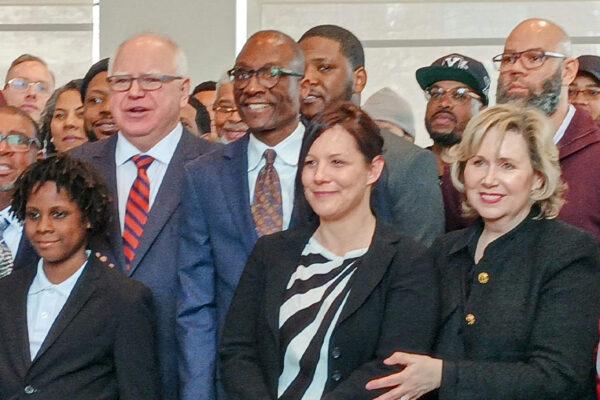ACLU Responds to Minnesota Supreme Court Ruling Against Restoring Voting Rights to Minnesotans
MINNEAPOLIS, Minn. – The Minnesota Supreme Court ruled today that our Constitution doesn’t automatically provide Minnesotans on felony probation with the right to vote upon release from incarceration.
The Restore the Vote MN coalition, which the ACLU-MN is part of, announced it will keep pressing urgently to pass a voting rights bill in the state Senate; the bill already passed the House.
“While it’s unfortunate this ruling upholds the perpetuation of disenfranchisement and mutes the voices of people as they re-enter society, we’re excited to continue moving forward in the Legislature, where we fully expect the Senate to restore the vote and end this exclusion of thousands of people,” said Brian Fullman, a lead organizer with RTVMN partners ISAIAH and Faith in Minnesota. “We’ll be outside the Senate and packing the galleries, encouraging lawmakers to make the right decision.”
Current state law bars people who are on felony supervision or probation from voting, even if they have finished serving a prison term, or have never served a day in prison. They cannot vote even though they live in the community, work jobs, raise families and pay taxes. The American Civil Liberties Union, ACLU-MN and pro bono counsel at Faegre Drinker filed Schroeder v. Minnesota Secretary of State to end this disenfranchisement.
“Our clients simply want the basic right to vote,” said Craig Coleman, a partner with Faegre Drinker. “No one in this litigation has ever claimed that there is any purpose served by excluding them from voting. With this decision, it is imperative that the Minnesota Legislature take action to extend the right to vote to all Minnesotans living in the community.”
The nearly 50,000 Minnesotans who the state bars from voting live in every county of our state. They are disproportionately Black, Indigenous and Latinx: Black people comprise about 6% of Minnesota’s voting-age population, but 24% of these disenfranchised voters; Native people, about 1.5% of the voting-age population and 7.5% of the disenfranchised; and Latinx people about 3% of the voting-age population but 6% of the disenfranchised.
“We believe the law is discriminatory, leading to racial disparities in voting that in turn lead to political inequality,” said ACLU-MN staff attorney David McKinney. “The criminal legal system’s goal is rehabilitation, redemption, and helping people rejoin their communities — this law clearly serves none of those purposes. The court’s ruling presents a golden opportunity for the Senate to join the House in demonstrating its belief in voting rights and end this disenfranchisement.”
“This ruling puts Minnesota at odds with the growing recognition that felon disenfranchisement laws are racially discriminatory and prevent people who have returned to their communities from having their voices heard in our democratic process,” said Julie Ebenstein, senior staff attorney with the ACLU’s Voting Rights Project, adding that in the past few years alone, Iowa, Kentucky, and Washington, D.C., have all expanded rights restoration.
Plaintiff Jen Schroeder was sentenced to 40 years of probation for a drug possession charge. She’s now a mother and a trained addiction counselor. Yet today’s Supreme Court ruling means she cannot vote until she is 71.
“I am angered by the Supreme Court’s decision, which means I can’t vote until I am 71,” Schroeder said. “By ruling against our case, the Minnesota Supreme Court has said that what I am doing, who I have become, is not enough. I and 53,000 other disenfranchised Minnesotans deserve to be treated as full members of society, not barred from voting for 40 years.”
The case was filed in Ramsey County District Court in October 2019. The Minnesota Court of Appeals issued its ruling in May 2021, and the ACLU team argued the appeal before the Minnesota Supreme Court on Nov. 30, 2021.
View the court ruling at .





